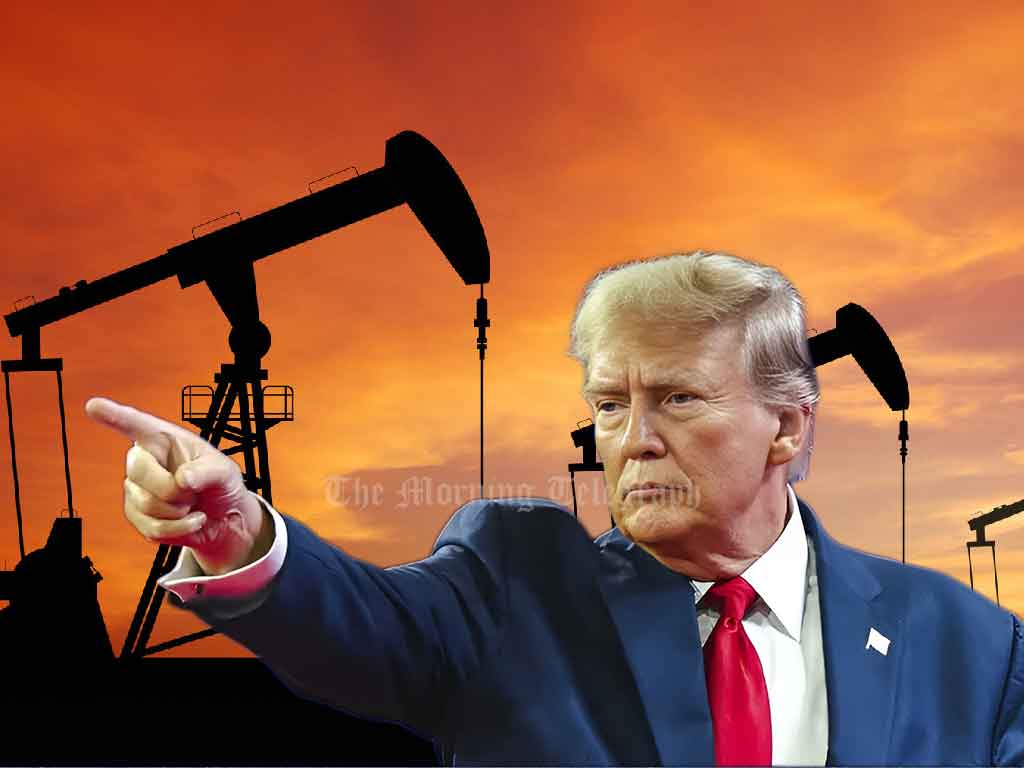
At the conclusion of the 2023 United Nations Climate Change Conference (COP28) in the United Arab Emirates, world leaders pledged to transition away from fossil fuels. The decision was hailed as a historic step toward global climate action. However, more than a year later, that commitment appears increasingly distant, as clean energy transitions stall and fossil fuel consumption continues to rise.
Now, with US President Donald Trump declaring a national energy emergency, the United States is embracing fossil fuels and rolling back clean energy policies. This shift is already influencing other nations and major energy corporations, raising concerns that the global energy transition could be severely delayed.
“If the US Isn’t Complying, Why Should We?”
Trump’s withdrawal from the Paris Agreement and renewed emphasis on fossil fuel production are having an immediate impact. Indonesia, one of the world’s top carbon emitters, has signaled that it may follow suit.
Hashim Jojohadikusumo, Indonesia’s special representative for climate and energy, openly questioned the fairness of climate commitments, saying,
“If the US refuses to comply with international agreements, why should a country like Indonesia follow them?”
Speaking at the 2025 Sustainability Forum on Environment, Society, and Governance (ESG) in Jakarta, Jojohadikusumo pointed out that Indonesia produces three tonnes of carbon per capita, while the US emits thirteen tonnes.
“Yet, we are being told to shut down our power plants and reduce steam-powered energy production, which mainly relies on fossil fuels. Where is the justice in that?” he asked.
Southeast Asia is a major producer and consumer of coal, and experts warn that the region’s energy transition may slow even further.
Niti Nesadurai, Southeast Asia Director of the Climate Action Network, cautioned that Trump’s fossil fuel push could encourage other nations to increase their own fossil fuel production.
“If the world’s largest oil producer is ramping up production instead of taking bold steps to phase out fossil fuels, it gives other nations like Malaysia and Indonesia an easy excuse to do the same. This could lead to catastrophic climate change and rising global temperatures,” Nesadurai warned.
Energy Giants Shift Focus Back to Oil & Gas
Trump’s fossil fuel-friendly stance is already influencing major energy companies in Europe.
Norwegian energy giant Equinor recently slashed its investment in renewable energy by 50% while increasing oil and gas production by 10%. Similarly, BP is expected to announce a similar shift soon.
Equinor CEO Anders Opiedl welcomed Trump’s policies, saying,
“When I hear ‘drill, baby, drill,’ I see it as a positive signal for the oil and gas industry.”
However, he acknowledged that investment decisions will still be influenced by global energy prices.
Africa & Latin America at a Crossroads
In South Africa, a $8.5 billion foreign-funded clean energy transition project has slowed significantly. Experts fear that if Trump’s pro-fossil fuel policies gain further traction, the project could be abandoned altogether.
Vic Kruger, director of the Power Futures Lab at the University of Cape Town, warned that South Africa’s coal phase-out plans could face indefinite delays.
“There is a very real risk that our transition away from coal will be postponed further. But if that happens, it could have a severe long-term impact on the South African economy,” he said.
In Argentina, President Javier Milei has signaled that his country may withdraw from the Paris Agreement altogether. His government has already pulled out of COP29, the upcoming climate summit in Baku, Azerbaijan.
“Now, we expect our oil and gas production to increase,” said Enrique Viall, president of the Argentine Association of Environmental Lawyers.
Viall also noted that Milei views environmentalism as a political agenda rather than a necessary step toward climate sustainability.
Trump’s Influence on Global Energy Markets
Trump has not only embraced fossil fuels at home but has also declared that “America will export energy around the world.”
Following his announcement, South Korea, Japan, and India—three of the world’s largest energy importers—have confirmed plans to purchase more US fossil fuels.
India, the world’s third-largest carbon emitter, has also unveiled an ambitious nuclear energy expansion in its latest budget.
Lorne Stockman, research director at Oil Change International, warned that Trump’s aggressive fossil fuel policies could significantly slow the global energy transition.
“If the US tries to flood the market with cheap fossil fuels while pressuring other countries to buy more, the global shift to clean energy could stall dramatically,” he said.
Can Renewables Keep Up?
Despite concerns, investment in clean energy continues to grow. According to BloombergNEF, global energy transition investment surpassed $2 trillion for the first time in 2024. However, growth has slowed sharply—from 24-29% between 2021 and 2023 to just 10.7% in 2024.
The World Economic Forum attributes the slowdown to economic instability, geopolitical tensions, and shifting technological trends.
Meanwhile, the United Nations has warned that none of the G20 countries—the world’s largest economies—are reducing emissions fast enough to meet their net-zero targets.
Banks Are Abandoning Climate Pledges
Adding to the crisis, major US banks withdrew from the Net Zero Banking Alliance (NZBA) in December 2024, just days before Trump’s fossil fuel expansion announcement.
The alliance, formed to align bank lending and investments with net-zero targets, lost several key members after US financial institutions distanced themselves from climate commitments.
Meanwhile, global carbon emissions rose by 1% in 2024, while atmospheric CO2 levels reached record highs. The year also marked the first time that global temperatures remained above 1.5°C over pre-industrial levels for an entire calendar year.
What Happens Next?
While Trump’s pro-fossil fuel policies threaten global climate commitments, some experts believe that renewable energy’s economic advantages will ultimately prevail.
“The economics of energy supply will be the key driver of decarbonization,” said David Brown, director of energy transitions at Wood Mackenzie, a global energy think tank.
“The US has a vast fossil fuel resource base, making oil and gas extraction attractive. But for import-dependent economies like China, India, and Southeast Asia, the long-term economic logic still favors clean energy investments.”
Still, if Trump’s fossil fuel policies continue to gain momentum, the world may face a critical question: Will global leaders prioritize climate action, or will they follow America’s lead and return to an era dominated by fossil fuels?
SOURCE :- BBC SINHALA





Trump is right to put America first.
Western nations’ committments to green targets and obeisance at the altar of “net zero” are acts of willfull self-impoverishment – they will do nothing to abate the inevitable progress of climate change and global warming, because the nations and regions that count and where a difference would be made will not or cannot afford to turn down the dial on their usage of fossil fuels and emissions of carbon dioxide. These nations are principally: China, India and Africa (most particularly Nigeria). These are also, not coincidentally, already or going to be the most populous nations on earth. The principal driver of climate change is that collectively there are too many of us on the planet. But no one wants to raise that self-evident reality.
Small nations such as Sri Lanka should put self-interest first and not pander to western liberal virtue seeking.